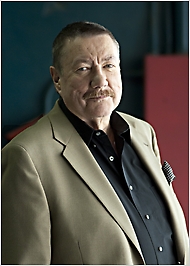I saw a line item in someone’s LiveJournal this morning that Madeleine L’Engle had died. Publishers Weekly had a couple of lines about it on their website today, with a comment that they only got the information at deadline, and would have a longer piece next week, and that’s all very well and good, but I needed to write something of my own.
I’ve never met Madeleine L’Engle, but her book A Wrinkle in Time was my first entry into science fiction and fantasy reading. I’d already been a fan of Star Trek and Space 1999 when someone handed my eight-year-old self a black book, no dust cover, no pictures, and sent me into the quilt covered bed in her guest room, and said, “Read this.”
The “someone” in question was a friend of my mother’s. I don’t remember her name, but she and her Latin American husband used to fuss over me and feed me carob drops, and on this night, she and my mother were involved in a project and a long conversation. There as a lightning storm outside the window, a bowl of grainy home-made vanilla ice cream nearby, and a really soft quilt, and I didn’t so much read the book as fall into it and never quite come out again.
I was hooked.
Over the years, L’Engle’s work has floated into and out of my life, with one of her novels dropping into my lap every so often, just when I needed it most. When my grandmother died, her Crosswicks Journals helped me process it. When I was adjusting to being back in California, married, and working for my mother Certain Women was my companion. On a cold night in January, I toasted my toes, cuddled my dog, and read her two novels about pianists and St. John’s Cathedral, and when I began my explorations into the Episcopal church a couple of years ago, it was a work of hers that was part of my reading.
Authors, through their words, touch so many lives so deeply, that we readers often feel as if we know them, when we don’t. It’s not the same sort of “knowing” as with a favorite actor or musician, but a closer one, at once more intellectual and more emotional. We see their thoughts, in the lines and dots that make up printed letters, you see. And we see into their hearts.
While I suspect Madeleine L’Engle and I might have disagreed on some fundamental social issues, I also think we’d have found things to talk about, and I KNOW she was a woman with a good heart.
I met her works as a child, and I continued to keep them as part of my library as I grew up. I think it’s marvelous that her stories are so timeless.
She will be missed.
Edited to add: The New York Times article about her is here, and it’s good, though it persists in referring to her as a “children’s author.”

